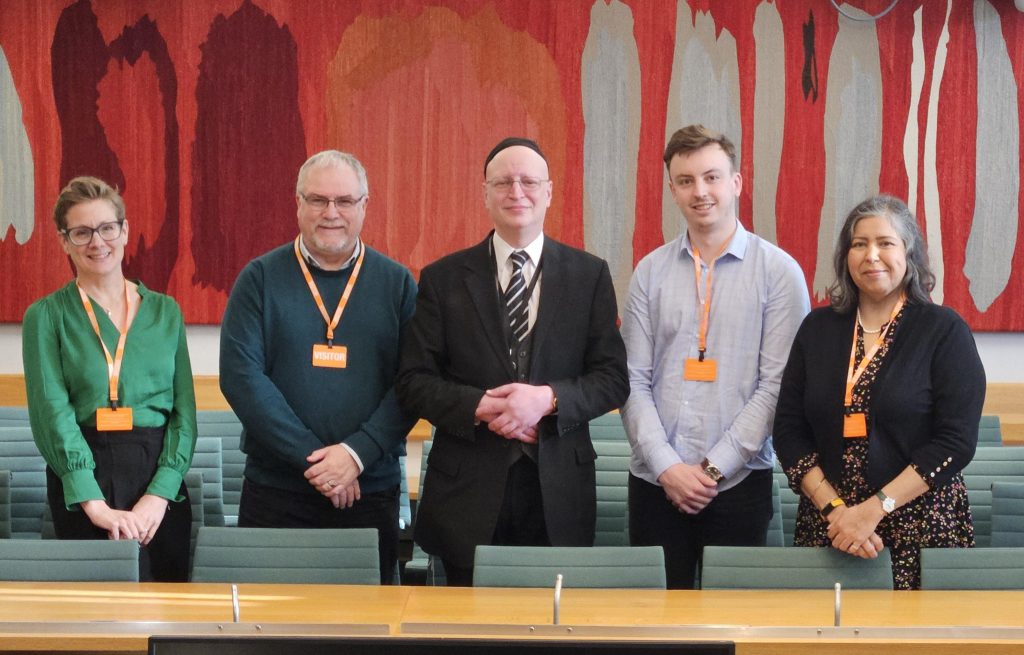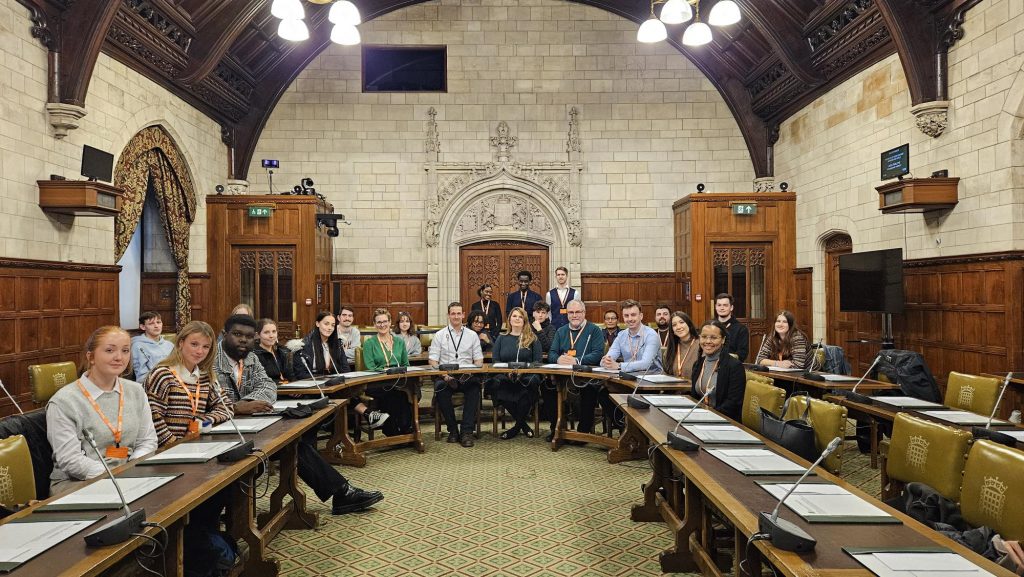PhD student Thomas Knight shares his thoughts on the recent visit to Parliament, where current students had the chance to talk to graduates who work there..
In his radio series produced for the BBC in the earlier part of our present century, Clive James reflected on the importance of liberal democracy, he pointed out that “In my share of these broadcasts I’ve placed a lot of emphasis on democracy, and on how it can never be a perfect system, but by the mere fact that no tyrant or oligarchy can ever count on remaining in power unchallenged, democracy can hope to avoid some of the abuses that even less perfect systems are guaranteed to generate. As somebody once said — I think it was Winston Churchill, but it could have been my uncle Harold — democracy is the worst political system you can imagine, except for all the others. If it was my uncle Harold, it was generous of him to say this, because during the Great Depression he spent a lot of time out of work.”. He went on to argue that his ‘uncle Harold’ was “…the living refutation of the fond idea that democracy should be participatory. The first duty of a government, in his view, was to leave people alone. More than half a century later I feel the same way myself. My last sparks of fiery radicalism have long been quenched. Privately I define democracy as that political system which leaves me free not to care about it. About that, I care passionately.”
Our democracy in the UK may not be perfect, in fact in recent years it has seemed far from it, but at least we as citizens have the ability to criticise and castigate our politicians without the fear of facing the barrel of a gun. Transparency in politics and government, whatever that government may be, is important. One only has to look to the Chernobyl disaster to see the consequences of obfuscation. In the brilliant Chernobyl HBO series the portrayal of Valery Legasov by an in form Jared Harris eloquently highlights the cost of lies and denial within a political system. Giving testimony to the judge Milan Kadnikov (a representative character) the dialogue goes something like this:
Judge Milan Kadnikov: Professor Legasov, if you mean to suggest the Soviet State is somehow responsible for what happened, then I must warn you, you are treading on dangerous ground.
Valery Legasov: I’ve already trod on dangerous ground. We’re on dangerous ground right now, because of our secrets and our lies. They are practically what define us. When the truth offends, we lie and lie until we can no longer remember it is even there, but it is still there. Every lie we tell incurs a debt to the truth. Sooner or later, that debt is paid. That is how an RBMK reactor core explodes. Lies.
I would like to think that such an event or conversation would not occur in a liberal democracy. The Soviet Union survived and thrived on lies, opaqueness and fear. Soviet citizens were not even aware of the damage that was being done to them on the marshes of Pripyat; as the radiation from Reactor Four was damaging their cells, the party apparatchiks were insisting that the explosion at Chernobyl was of no concern. Why? Because they did not know themselves. They feared the apparatus of the state more than the energy of the atom. It was thus in that spirit of truth, transparency and an optimistic belief in the importance of liberal democracy that I attended a visit to the Houses of Parliament with other members of staff and students from Law and Politics.

After arriving at Portcullis House our first meeting was with the Parliamentary Commissioner for Standards Daniel Greenberg CB in the ‘Wilson Room’. We had a round-table discussion concerning what our students expected of their elected representatives and what they made of current standards in UK politics. Mr Greenberg asked the room if anyone could give an example of poor parliamentary standards. Now, it is fair to say that Mr Greenberg takes a ‘robust’, barrister like, approach to engagement and so almost surreptitiously I raised my head above the parapet and ventured the name Owen Paterson. In 2021, Paterson had been found to have ‘brought the house into disrepute’ for breaking paid advocacy rules in relation to a company called Randox. He later resigned as an MP and disappeared into obscurity, the one final irony being that as a committed Brexiteer he appealed to the ECHR claiming that the investigation into his actions was unfair, but this was rejected by the court in September 2024. Mr Greenberg, far from seeing this as a representation of poor parliamentary standards said it was actually one of the finest examples of how robust and transparent our parliamentary democracy is when dealing with public maleficence. The fact that we knew what Owen Paterson had done, why it was wrong, and the fact that he was going to be sanctioned with a recall petition if he hadn’t resigned beforehand showed democratic accountability in action. Also, the fact that the public, if they so wished, would be able to read the reports and observe these events as they took place only added to the credit side of the account. Following this there was a general discussion about the register of interests, hospitality and the potential conflicts of interest inherent in the political lobbying of MPs. We thanked Mr Greenberg for his time and then proceeded to the Houses of Parliament to meet with two former Canterbury Christ Church University students who now work for MPs, Andrew Achilleos and Christine Wallace.
Mr Achilleos works for the Office of Margaret Mullane, the MP for Dagenham and Rainham and Ms Wallace is Chief of Staff to Dr. Neil Shastri-Hurst, the MP for Solihull West and Shirley. The meeting was held in the Grand Committee Room just off of Westminster Hall. They both gave brief overviews of their careers and what it was like to work in Parliament for MPs. One of the common threads that came out of this discussion was the fact that a lot of MPs work harder than the general public think, with some putting in up to eighty hours a week. However, it was agreed that there genuinely did seem to be a disconnect between the goings on in Parliament and the general public. Identifying a way of bridging that gap is a question for the ages, probably on a similar scale to the meaning of life, and unless Douglas Adams is correct, the answer would not appear to be 42. In spite of this I left these discussions with a reinvigorated belief in liberal parliamentary democracy; the fact that we were even able to ponder on these questions with a healthy level of scepticism showed that we were not quite yet in the same position as say the Chinese or the Russian people where ‘democracy’ in a man in a grey suit with a gun in hand and cuffs on the hip.

After concluding our business with the former students we were taken on a tour of the Houses of Parliament with a very enthusiastic tour guide called Nick (he did ask to be mentioned in dispatches). Going on a whistle-stop tour of British political history, all the way from the Civil War and back again was a fascinating experience; this plus seeing the voting lobbies with their ‘ayes’ and ‘no’s’, ‘contents’ and ‘not-contents’ and the upper and lower chambers made me feel grateful for our idiosyncratic form of government. It may not be modern, and it may not be perfect, but as Churchill might have said, it is better than no democracy at all.
 Politics
Politics Laura Cashman
Laura Cashman 1344
1344


